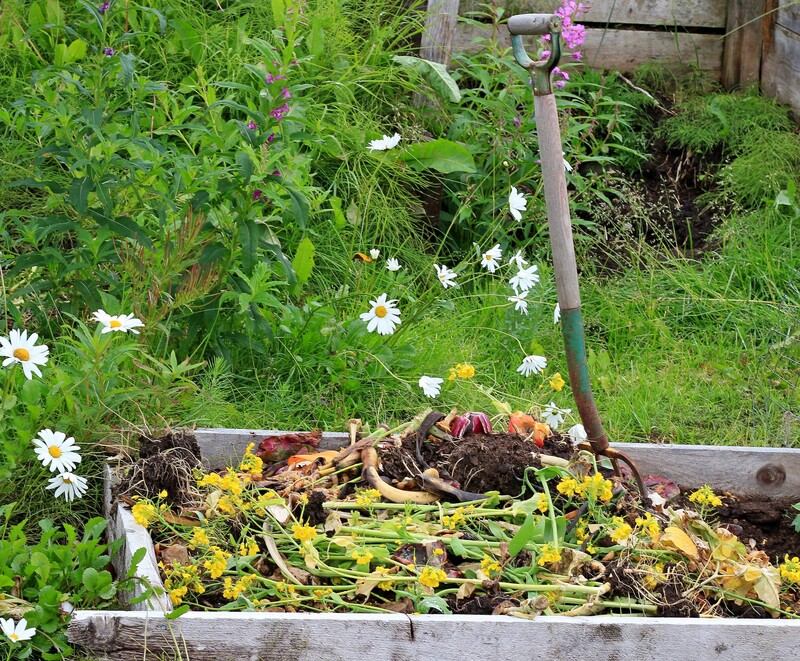Community Approaches to Responsible PPE Waste Disposal
The COVID-19 pandemic has brought a surge in the use of personal protective equipment (PPE) such as masks, gloves, face shields, and gowns. While these items are crucial in maintaining public health and safety, they have also introduced a new environmental challenge: the disposal of PPE waste. Communities worldwide are now tasked with finding sustainable and responsible methods for managing this surge. This article explores community approaches to responsible PPE waste disposal and offers insights for individuals and organizations seeking to make a difference.

Understanding the PPE Waste Challenge
*PPE waste* refers to the disposable protective items used by the public and frontline workers during health crises, notably the COVID-19 pandemic. Most of these products are single-use and made from plastic-based materials that don't biodegrade quickly, posing severe environmental risks when not disposed of correctly.
- Discarded PPE can pollute land and water, impacting wildlife and ecosystems.
- PPE waste in public spaces can increase the transmission risk of infectious diseases.
- Improper PPE disposal contributes to growing landfills and microplastic pollution.
Communities across the globe are recognizing these challenges and taking proactive steps to address them. *Responsible PPE waste management* is not just a governmental responsibility--engaged communities play a vital role.
Why Community Participation Matters in PPE Waste Disposal
Community-driven initiatives for responsible PPE waste disposal ensure that waste management protocols are tailored to local needs and capabilities. Collaborative approaches empower residents, businesses, and organizations to minimize environmental harm and protect public health.
- Awareness and Education: Communities can raise awareness about proper disposal methods.
- Accessibility: Localized PPE waste collection points increase compliance.
- Accountability: Community initiatives foster a sense of responsibility among residents.
- Innovation: Local solutions often bring creative and effective results.
Effective Community Approaches to PPE Waste Management
1. Establishing Dedicated PPE Waste Bins
One of the most significant steps in responsible PPE waste disposal is the introduction of dedicated bins for collecting PPE items in public and private areas. These specially marked bins help prevent contamination of general waste and facilitate safe handling.
- Place bins at entrances of supermarkets, hospitals, schools, and transport hubs.
- Use clear labeling and signage to indicate *PPE waste only*.
- Ensure regular and safe collection by trained staff.
This approach not only keeps PPE separate from recyclable and compostable waste but also minimizes the risk of secondary infection or contamination.
2. Community Education Campaigns
Education is crucial for empowering residents to make informed decisions regarding PPE disposal. Community organizations can collaborate with local governments, schools, and businesses to launch information drives.
- Workshops and webinars on correct PPE waste handling and disposal methods.
- Social media campaigns using graphics and videos to appeal to diverse audiences.
- Printed materials such as flyers, posters, and leaflets in multiple languages.
Community education ensures that responsible PPE waste management becomes second nature among all age groups.
3. Community Clean-Up Initiatives
Many community groups organize periodic cleanups to gather discarded PPE from streets, parks, and beaches. These events not only enhance environmental health but also strengthen community bonds.
- Distribute gloves, masks, and tongs for safe collection.
- Arrange for the collected *PPE waste* to be safely disposed of or sent for processing.
- Use these events to educate participants about the impact of improper PPE disposal.
Such collective actions foster civic pride and highlight the importance of individual responsibility in community health.
4. Partnerships with Local Businesses
Local businesses can play a pivotal role in proper PPE waste disposal. By collaborating with pharmacies, retailers, and office complexes, communities can expand collection points and ensure responsible handling of used PPE.
- Install visible PPE disposal bins at business premises.
- Offer discounts or rewards to customers who use designated PPE collection facilities.
- Partner with waste management companies for safe transportation and processing.
Engaging the business community promotes public health and supports sustainable waste management.
Innovative Solutions and Global Success Stories
Pioneering PPE Recycling Programs
Some communities and companies have introduced PPE recycling programs, turning used masks and gloves into new products. Innovative recycling technologies can break down *polypropylene masks* into raw materials.
- Used PPE can be sterilized and converted into plastic pellets.
- These pellets are then used to manufacture items like park benches, construction materials, and even new PPE.
A globally acclaimed example is the UK's "ReFactory PPE" scheme, which collects and recycles PPE from healthcare centers, thereby reducing landfill waste and creating circular solutions.
Incentive-Based Community Programs
Some municipalities have adopted reward-based community programs to encourage citizens to dispose of PPE responsibly. Through points systems, discounts, or public recognition, these initiatives motivate ongoing participation.
- Participating in PPE collection can earn credits redeemable at local stores.
- Symbols of civic responsibility like badges or certificates can be awarded to active participants.
- Local schools can incorporate PPE waste management into environmental education curricula, offering awards to students who contribute.
Challenges Facing Community PPE Waste Disposal
Despite progress, there are still *significant obstacles* to overcome for effective community-based PPE waste management:
- Improper Disposal: Many individuals dispose of PPE with domestic waste or litter in public spaces due to convenience or ignorance.
- Limited Infrastructure: Inadequate availability of dedicated PPE bins and waste processing facilities burden local authorities.
- Health Risks: Improper handling during collection or recycling can pose hazards to waste workers and the public.
Addressing these issues requires ongoing community engagement, government support, and consistent public messaging.
Best Practices for Community PPE Waste Management
- Always use designated PPE bins. Avoid mixing PPE with regular recycling or compost waste to prevent cross-contamination.
- Never litter PPE items in public places.
- Wear gloves when handling used PPE. Practice proper hand hygiene after disposing of PPE waste.
- Support local PPE recycling initiatives.
- Educate friends, family, and coworkers about responsible PPE waste disposal.
How Individuals Can Contribute to Responsible PPE Disposal
Every community member has a role to play in minimizing PPE pollution. Simple actions include:
- Using reusable masks and gloves where safe and appropriate.
- Cutting ear loops of disposable masks to prevent wildlife entanglement before disposal.
- Reporting illegal PPE dumping to local authorities.
- Participating in clean-up and awareness initiatives.
The Role of Technology in Improving PPE Waste Disposal
Technological innovation is playing a crucial part in making PPE waste disposal more responsible and efficient for communities:
- Smart Bins: Digital bins with sensors can monitor fill levels, encourage timely collection, and reduce overflow.
- Mobile Apps: Apps guide residents to nearest PPE disposal points, offer reminders, and provide education.
- Tracking and Data Analytics: Technology helps track waste generation and identify high-risk areas into which to focus resources.
Integrating tech-driven solutions with human-centric approaches can significantly enhance *PPE waste management* outcomes.

Long-Term Vision: Building Resilient Communities
While the immediate need for proper PPE waste disposal emerged during the COVID-19 pandemic, these community approaches will remain relevant for future health crises or environmental emergencies. A resilient community is one that adapts and learns from current challenges, continuously improving its systems and partnerships.
Policy Recommendations
Communities and local governments can bring about lasting change by:
- Mandating the installation of dedicated PPE bins in all public spaces.
- Introducing strict penalties for improper PPE waste disposal.
- Operating public-private partnerships for recycling and education initiatives.
- Allocating funds for sustainable waste processing technologies.
Sustainable PPE Alternatives
Looking ahead, communities should also advocate for the use of sustainable or biodegradable PPE products, which are increasingly available from developers and manufacturers. Encouraging such alternatives can significantly lessen the environmental footprint of protective equipment.
Conclusion: A Shared Responsibility for a Cleaner Future
Responsible PPE waste disposal is a challenge that requires collaborative, innovative, and sustained community action. Whether through dedicated collection points, educational initiatives, technological solutions, or policy changes, every effort contributes to protecting public health and safeguarding our natural environment.
The collective action of communities worldwide demonstrates a powerful truth: when individuals, businesses, and governments work together, they can build effective systems to manage even the most unexpected waste streams, like PPE.
Let us all embrace responsible PPE waste management as an ongoing commitment to our health, our environment, and our shared future.